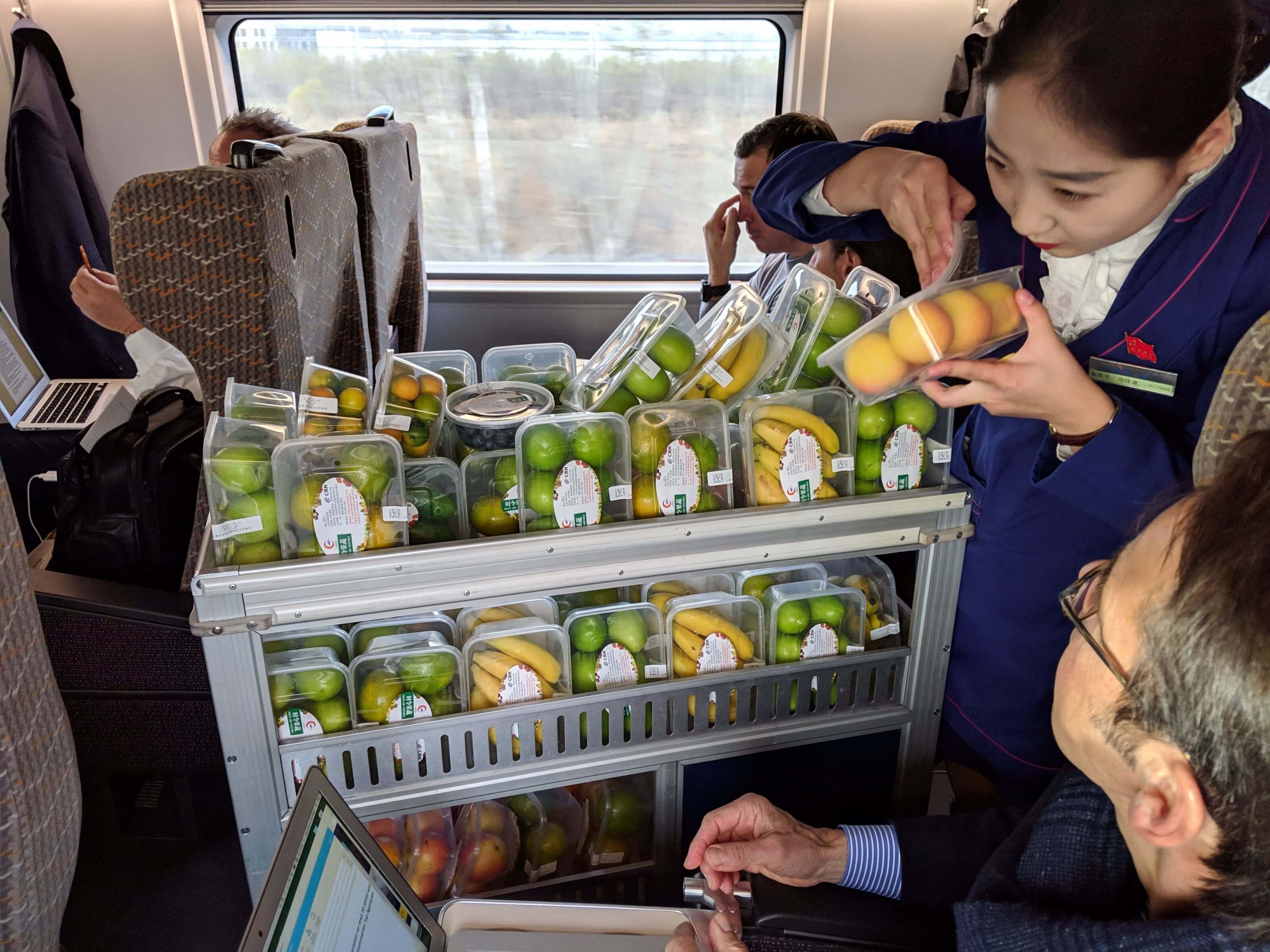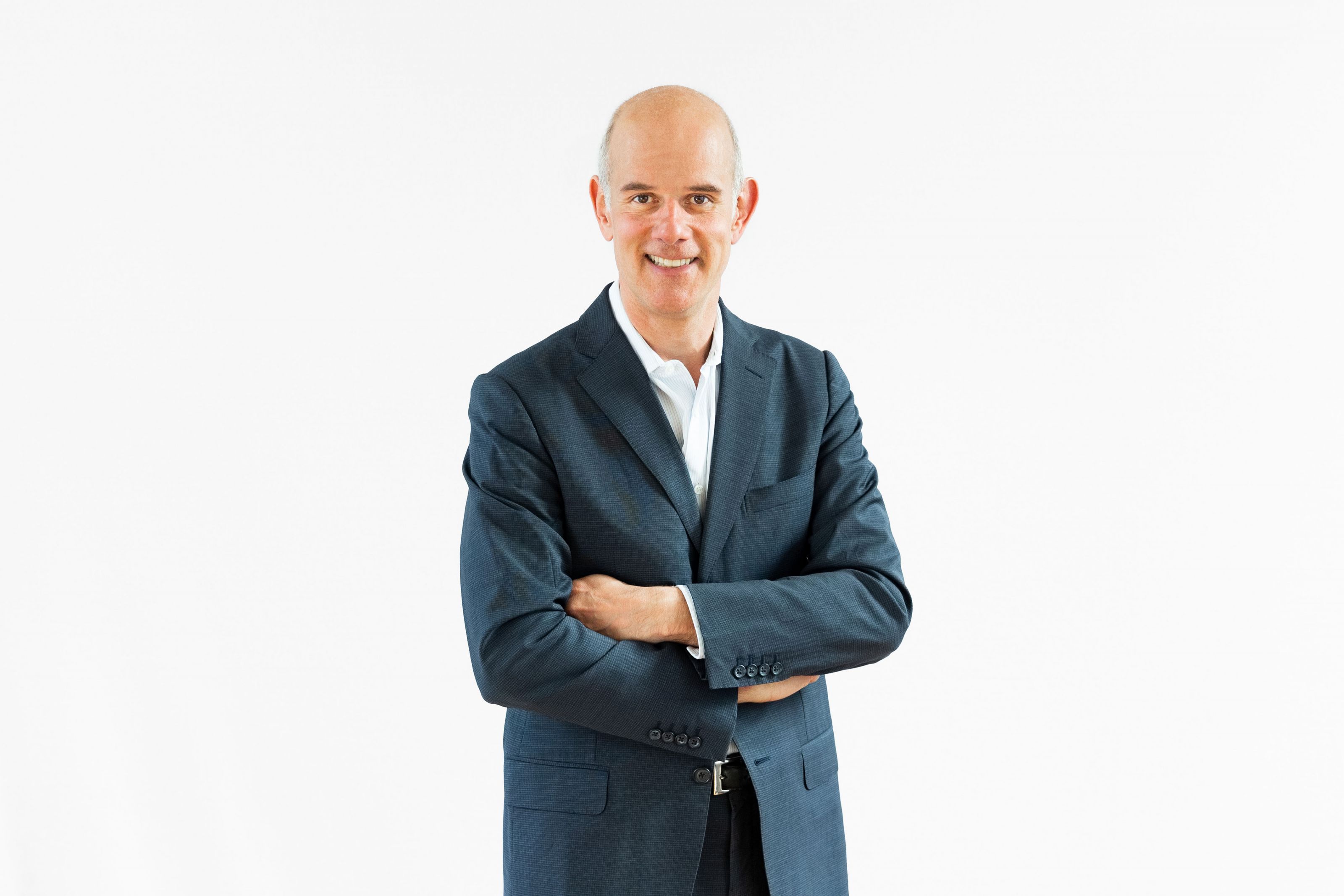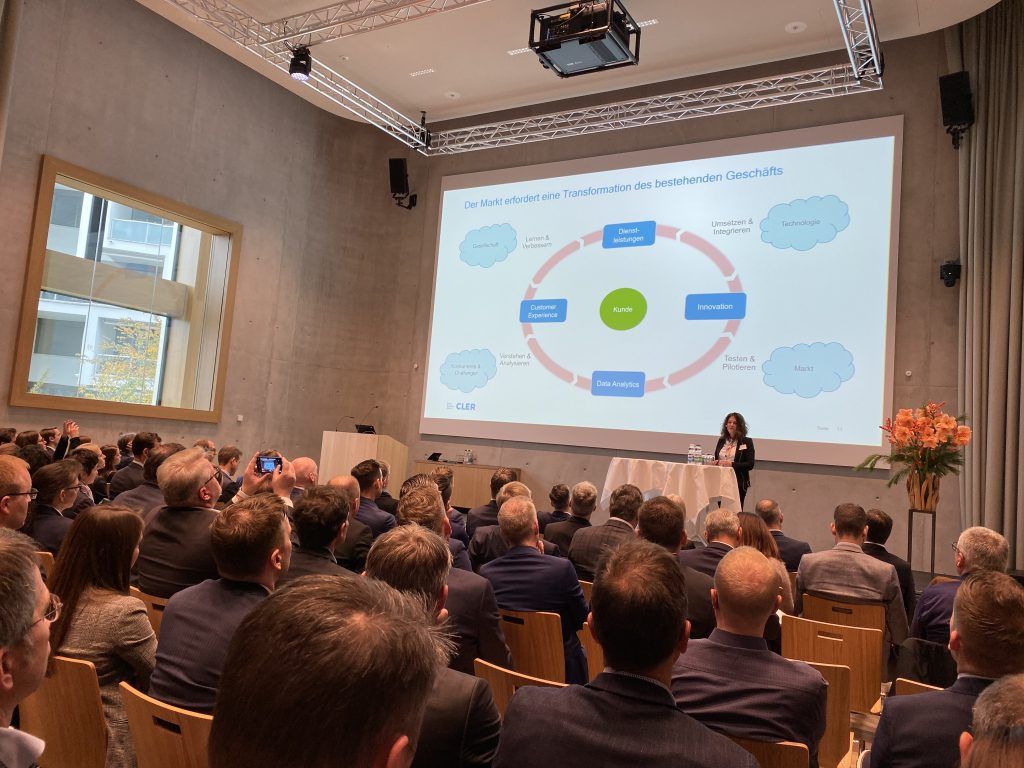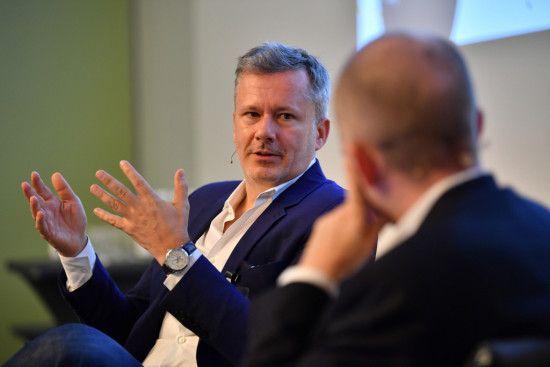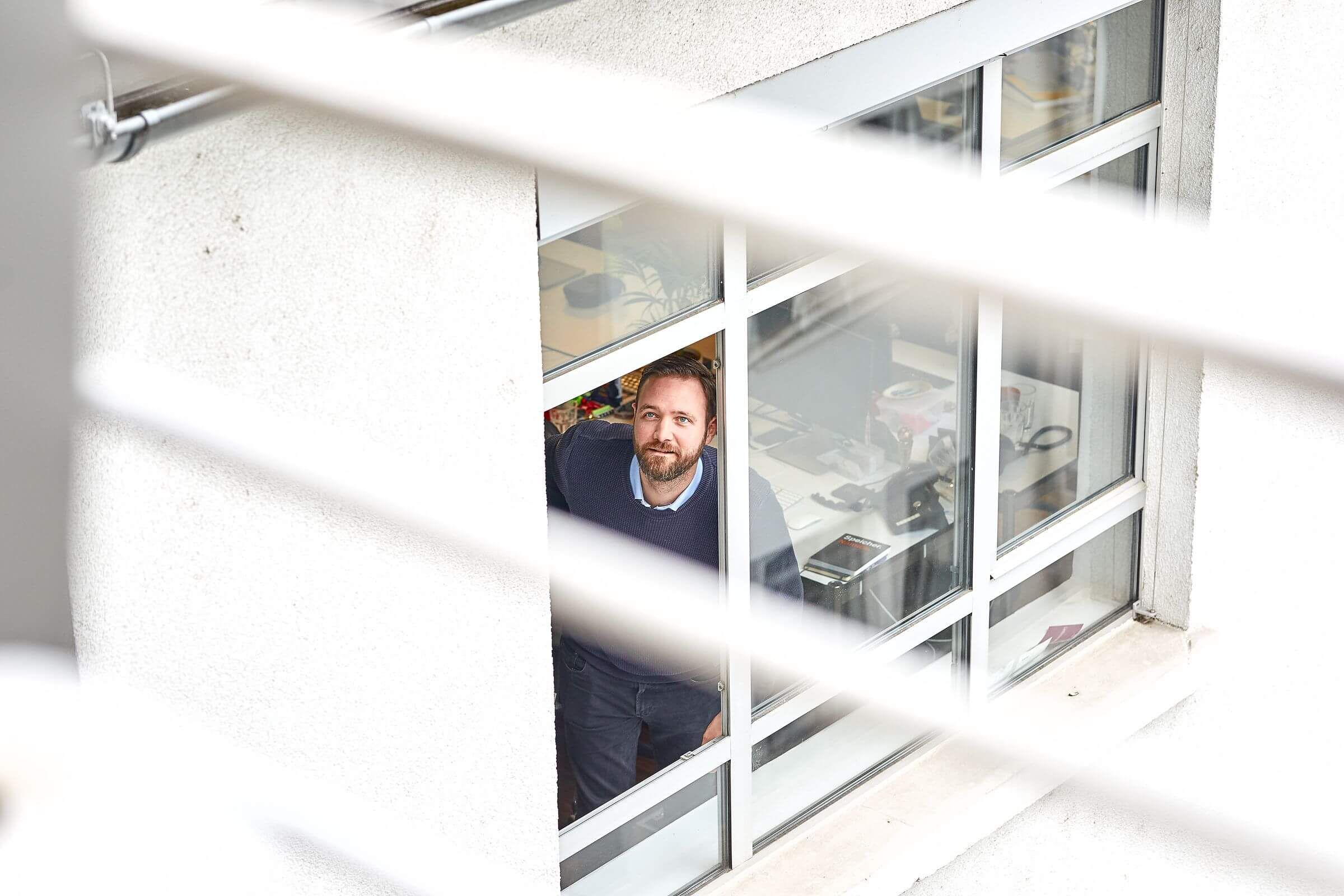Smart Retail versus New Retail in China - New concepts
We show new shopping experiences and concepts in China and what we think of them
The most important things happen behind the scenes, but one after the other.
I have visited the store concepts 7Fresh (from JD.com) in Beijing and Hema (from Alibaba) in Shanghai and had them explained. The two Internet giants are thus engaged in a battle to reinvent food shopping in the real world. Or as it is called here again and again O2O: Online to Offline. And of course Tencent would also have his version of it, it is called Le Marche and is a joint venture with Carrefour. Tencent's presentation summarizes the concept as follows:
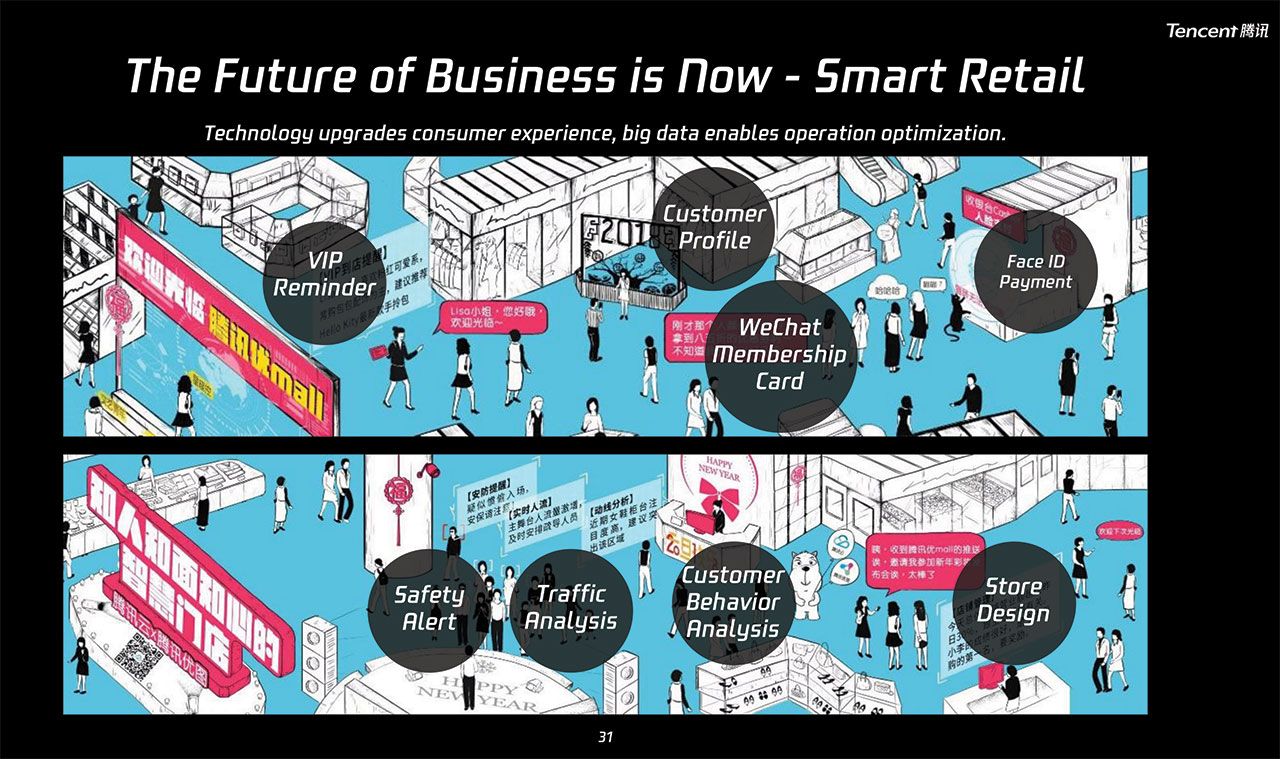
In the following, I am not interested in comparing the stores, but in explaining how the new shopping experience is defined in China. And therefore a few words about Starbucks monster store, the Reserve Roastery Shanghai. All store concepts are amazingly offline, but pay attention to the details that I'll try to extract in the following:
- there's also cooking and eating...
- it is also supplied
- Data, data, data
The two concepts are identical in many aspects, including the statement on the location of the shops: a minimum of 1 million people should live within a radius of 3 km, so that a branch is worthwhile. But the radius also has another meaning: everything is delivered there within 30 minutes. No matter if I order frozen or raw goods (ready to cook, ready to eat, ready to heat) or even ready cooked menus. From ordering in the app to delivery within 30 minutes, including any preparation! According to Alibaba, this succeeds in over 98% of cases and new housing units would also be built depending on such shops. But once again, I'm getting ahead of myself.
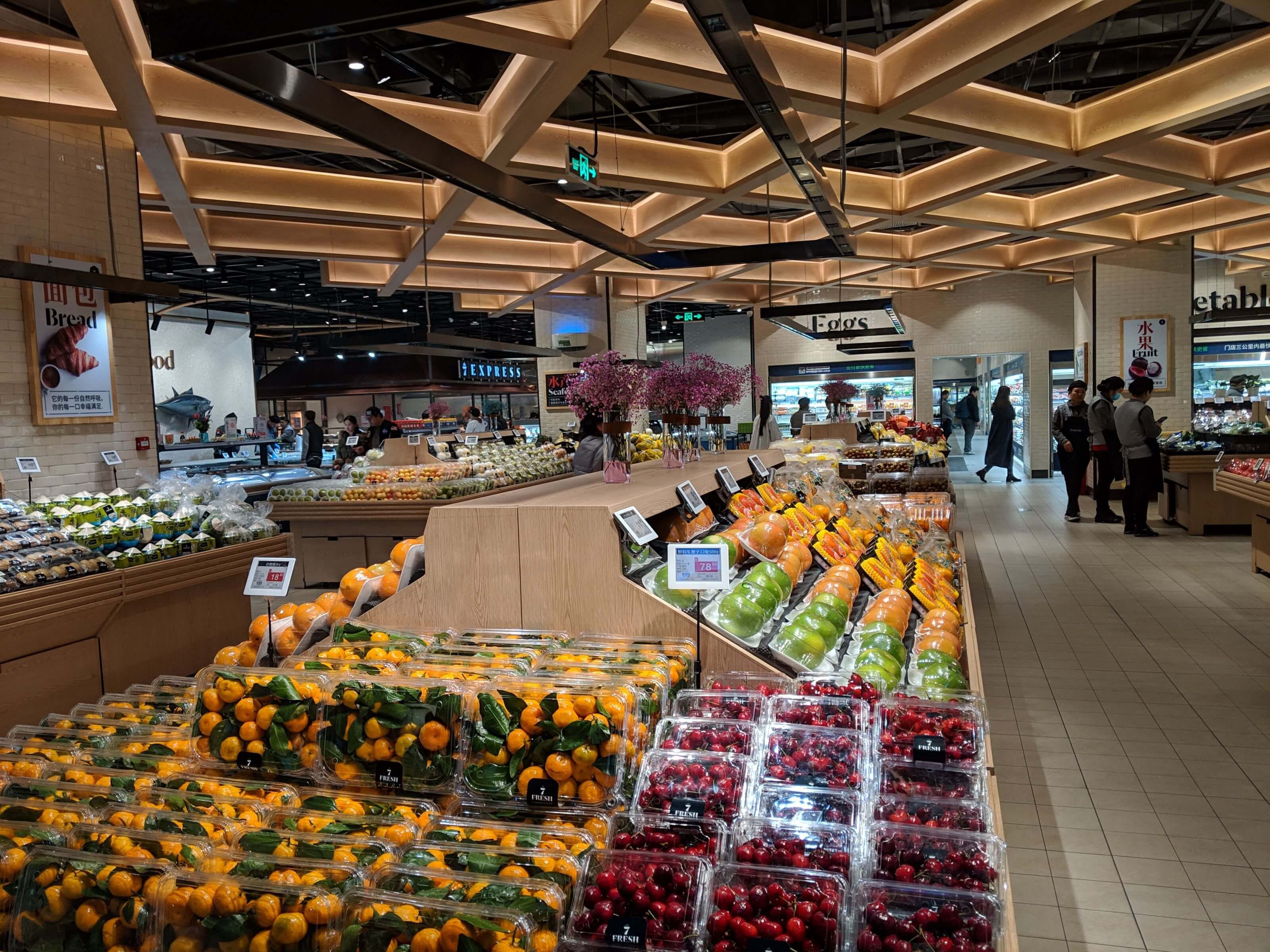
It is also cooked and eaten
The supermarket is also a kitchen and a place to eat. The possibility of preparation is purely practical, the possibility to stay, pays tribute to the importance of being together in China. The latter aspect appears again and again in all presentations of all platforms: Business in China is always social. The best advertising (also online) is what we call Influencer and they call KOL: Key Opinion Leader.
If I want my hairy crab to be cooked, I take it raw from the display, bring it to the cooking counter and scan a barcode that allows the provider's app to notify me when I can pick it up and pay at the self-checkout. I already mentioned in my first post that everything happens in an app. An interesting detail here is that in the case of Android, both shops offer an APK download via QR code. This, because the Google Play Store in China is blocked. With iOS the App-Store works quite normal.
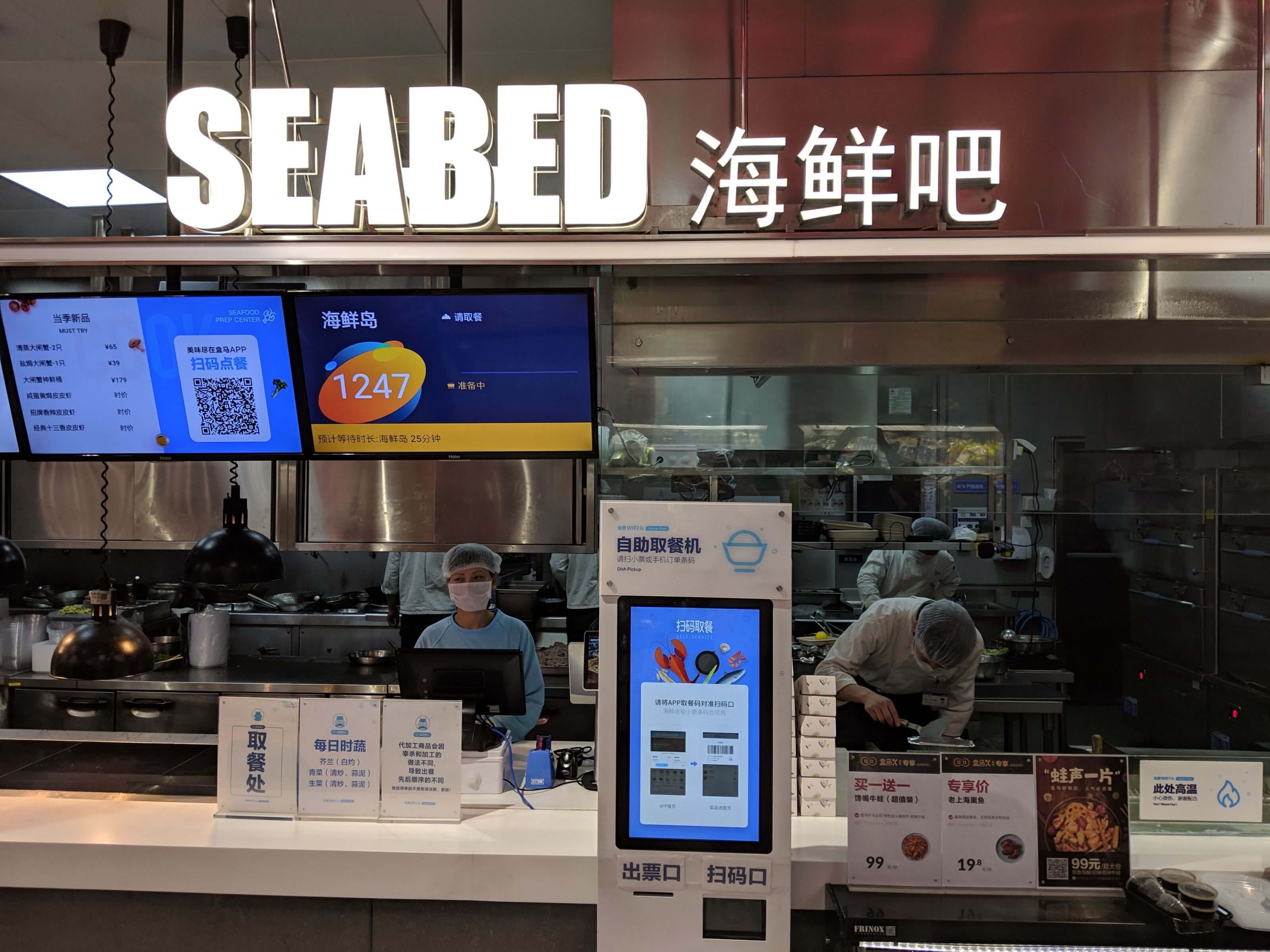
There are also stands like in a "food court" with menus written on them. These are freshly prepared and I can either take the result with me or eat it in the shop. The preparation as well as the eating in the shop, as an event, the Italian Oscar Farinetti with his Eataly chain preaches.
It is also delivered
I have already mentioned the delivery within 30 minutes. When a new store is opened, people explore the new store via offline shopping and over time a stable ratio of 60% online and 40% offline settles down. Alibaba's vision is that people no longer need a refrigerator at home and order all their needs à la minute online.
The packaging of online orders is done by people, so-called pickers. Attached to the shop is a warehouse in which the frequent online articles are stored. It would be better to run around there. B- and C-articles are taken from the shelves by the pickers in the shop. This has the effect that about every fourth person in the shop is a picker. Equipped with a specialised device and a basket in the colour of the food category. Once filled, these baskets are handed over to a conveyor belt, which transports them to the department store for integration into the order.
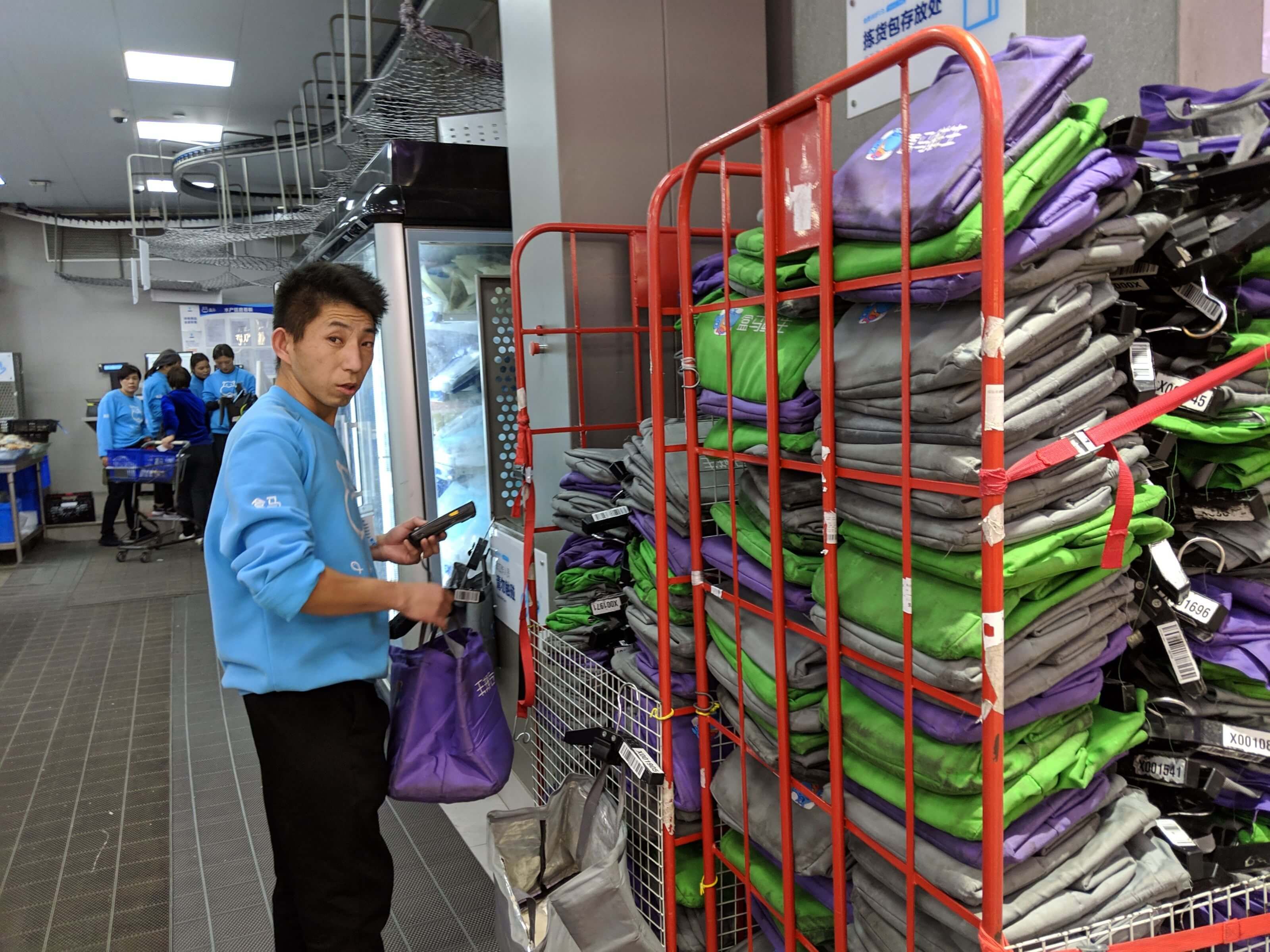
Data, data, data
When explaining the concepts, the key message is that logistics makes the difference. Optimization of the offer, especially but also of the route optimization in picking and delivery. I don't know the details, but it is noticeable how much data the shops aggregate, since everything happens in the same app. And since payment is also electronic, the customer profile is very complete. So Alibaba talks about over 600 million aggregated customer profiles across all platforms. Elsewhere, Tencent talked about being able to describe each customer profile with 600 attributes.
Visible is the mastery of the data on a small scale. For example, all price tags are digital and get their current information via WiFi. Or when ordering online, the app knows the stock in the store in real time. In the app, I can also call up additional information on a large number of products via barcode. This information is provided directly by the manufacturer (video with an example of a Lindt chocolate). There is no information about allergens, as this is "not such an issue" in China.
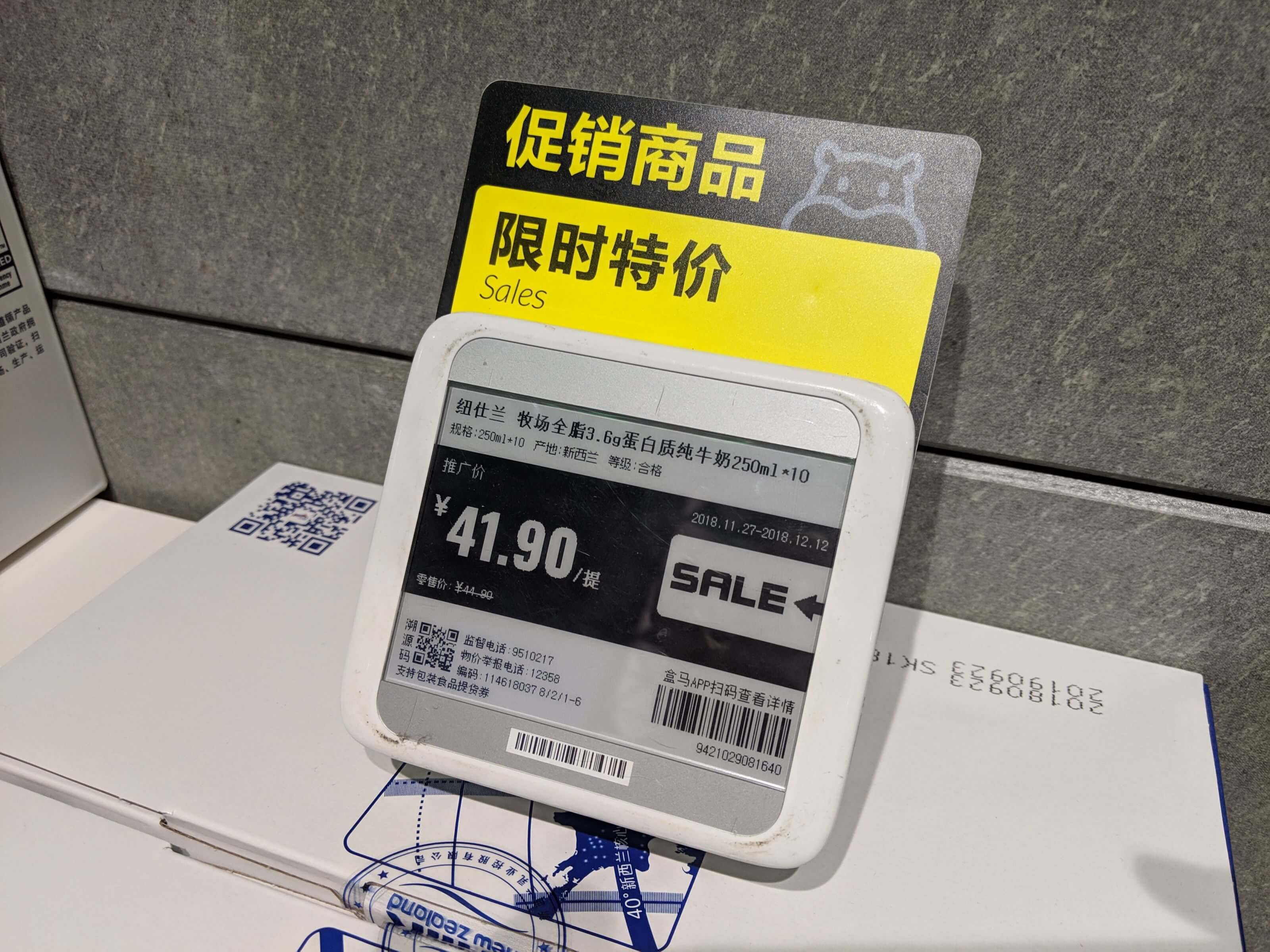
One way of mastering data is to market certain products at Hema as "particularly fresh": the packaging changes daily and shows the day of validity in large letters, here using vegetables as an example. When asked about the next day's recycling, the employee spontaneously said "destroy", but immediately corrected that the products would then go to the kitchen or bakery. Food waste does not yet seem to be an issue here and it is also good manners to always serve more than enough food.
Pretty much offline
In summary, the future branches of Internet giants JD.com and Alibaba felt quite traditional, but much more conservative than Amazon Fresh. The Chinese apps cannot do much more than order, notify and inform. The payment itself is done at self-checkout (often with payment via face recognition).
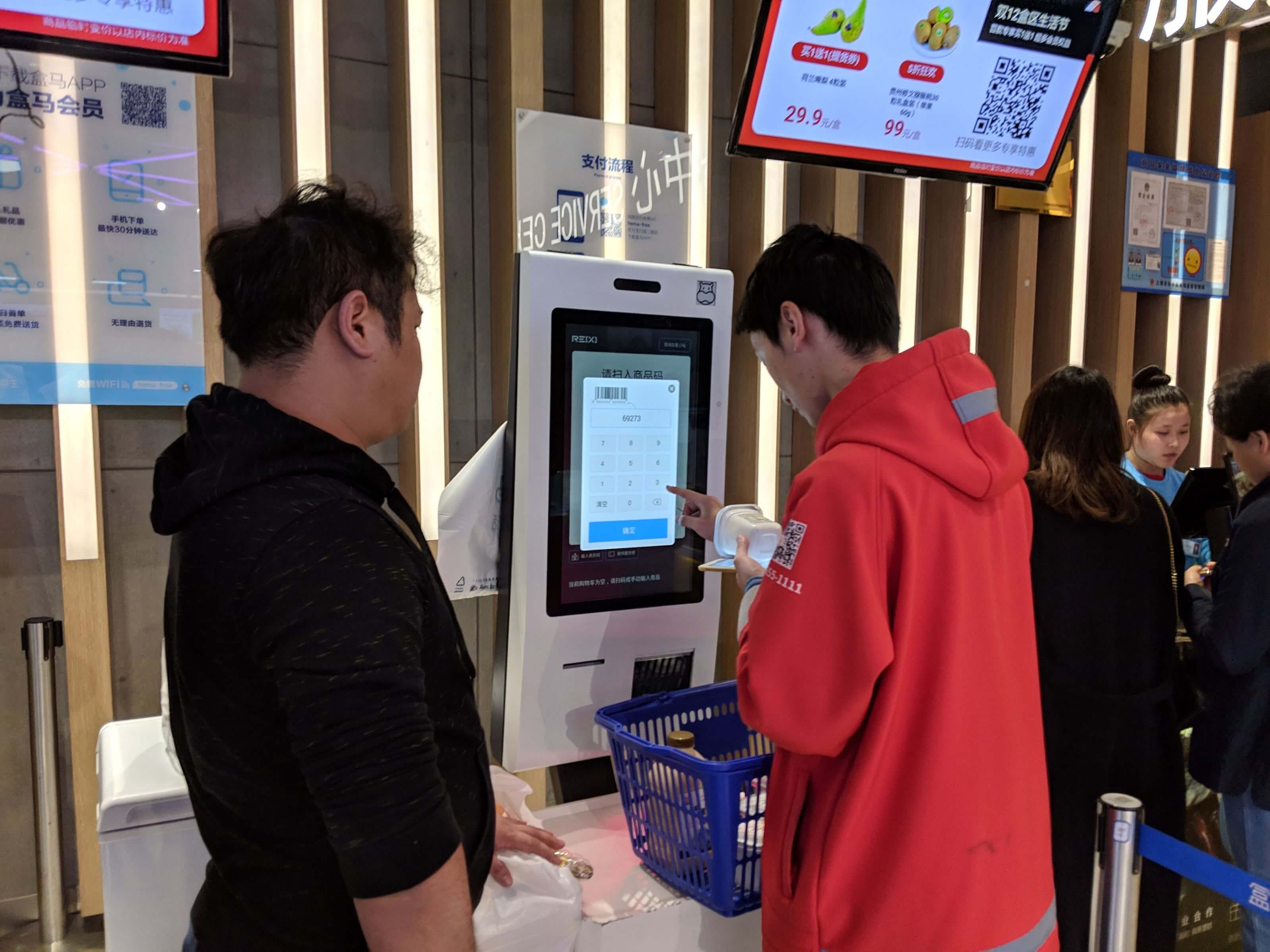
Starbucks Reserve Roastery in Shanghai
With 2700 m^2, the largest Starbucks store in the world beats in the same notch "experience" and "social". This is also where coffee (and tea) is served, but above all, coffee is roasted and packaged and the baking of bread in the store is staged.
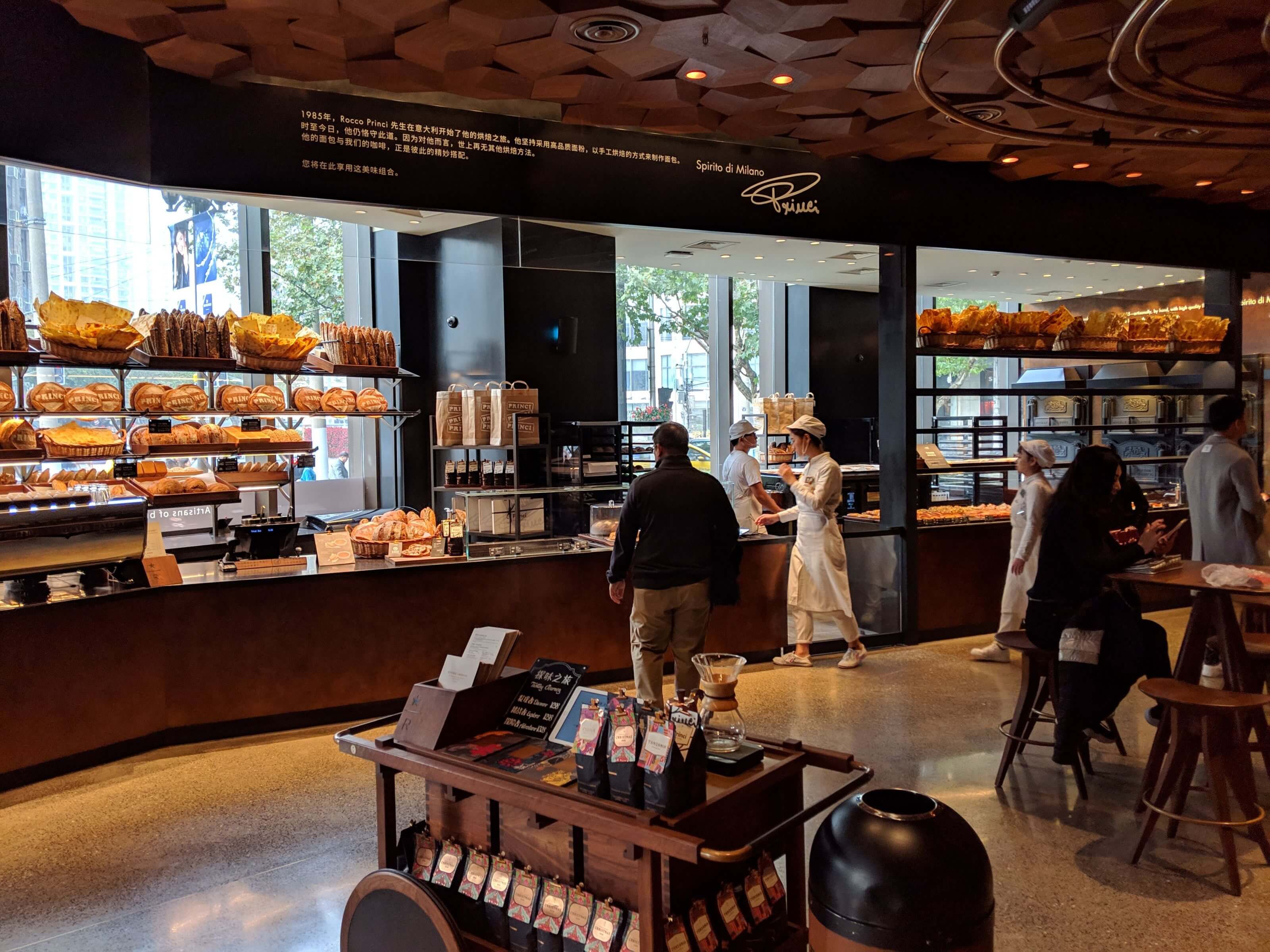
It takes getting used to. But the commitment of the employees is impressive. They need at least 4 years experience in another Starbucks and see themselves as actors: "We are actors and this is our stage". What makes the job here special, they can recite without mistakes (and they can even wake up in the middle of the night). This also includes "A passion to serve customers".
The shopping of the future happens on a stage and again resembles more a chatty bazaar than contemplative silence, accompanied by meaningless music. And everything can be delivered in 30 minutes if desired ;). But what I liked best of all was the fresh fruit on the "Bullet Train" from Beijing to Shanghai.
